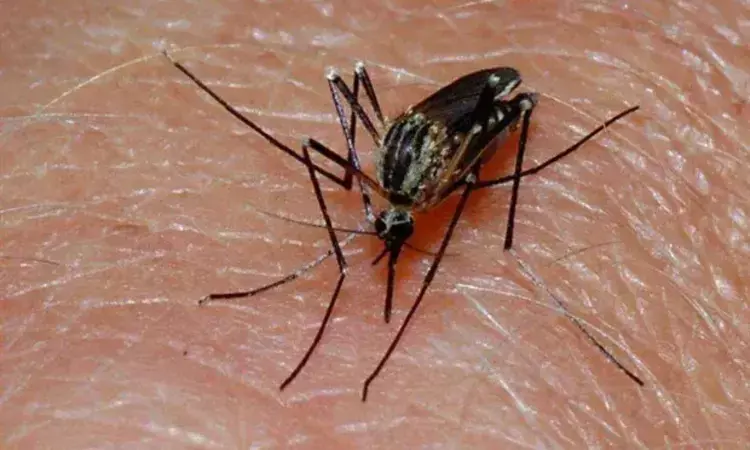- Home
- Medical news & Guidelines
- Anesthesiology
- Cardiology and CTVS
- Critical Care
- Dentistry
- Dermatology
- Diabetes and Endocrinology
- ENT
- Gastroenterology
- Medicine
- Nephrology
- Neurology
- Obstretics-Gynaecology
- Oncology
- Ophthalmology
- Orthopaedics
- Pediatrics-Neonatology
- Psychiatry
- Pulmonology
- Radiology
- Surgery
- Urology
- Laboratory Medicine
- Diet
- Nursing
- Paramedical
- Physiotherapy
- Health news
- Fact Check
- Bone Health Fact Check
- Brain Health Fact Check
- Cancer Related Fact Check
- Child Care Fact Check
- Dental and oral health fact check
- Diabetes and metabolic health fact check
- Diet and Nutrition Fact Check
- Eye and ENT Care Fact Check
- Fitness fact check
- Gut health fact check
- Heart health fact check
- Kidney health fact check
- Medical education fact check
- Men's health fact check
- Respiratory fact check
- Skin and hair care fact check
- Vaccine and Immunization fact check
- Women's health fact check
- AYUSH
- State News
- Andaman and Nicobar Islands
- Andhra Pradesh
- Arunachal Pradesh
- Assam
- Bihar
- Chandigarh
- Chattisgarh
- Dadra and Nagar Haveli
- Daman and Diu
- Delhi
- Goa
- Gujarat
- Haryana
- Himachal Pradesh
- Jammu & Kashmir
- Jharkhand
- Karnataka
- Kerala
- Ladakh
- Lakshadweep
- Madhya Pradesh
- Maharashtra
- Manipur
- Meghalaya
- Mizoram
- Nagaland
- Odisha
- Puducherry
- Punjab
- Rajasthan
- Sikkim
- Tamil Nadu
- Telangana
- Tripura
- Uttar Pradesh
- Uttrakhand
- West Bengal
- Medical Education
- Industry
Monoclonal Antibody Shows Promise in Preventing Malaria in Children, reports study

Researchers have found that a single subcutaneous injection of an investigational monoclonal antibody called L9LS significantly reduces the risk of malaria in children. This phase II trial in Mali demonstrated that the antibody was both safe and effective in preventing Plasmodium falciparum infections among children aged 6 to 10 years. This study was published in The New England Journal Of Medicine by Kayentao and colleagues.
Malaria, a life-threatening disease caused by Plasmodium parasites, continues to pose a significant health burden worldwide, particularly in sub-Saharan Africa. In 2022, the World Health Organization (WHO) reported over 600,000 deaths due to malaria, the majority among young children. The development of long-acting drugs for malaria prevention could be a major step forward in controlling the disease.
The Mali Malaria mAB trial included 225 children aged 6 to 10 years and evaluated the safety and efficacy of L9LS in preventing malaria. Children were randomized to receive either a 150-mg dose, a 300-mg dose, or a placebo injection. Before the trial, participants were treated with antimalarial medication to clear any existing infections.
The key findings of the study were as follows:
• Infection rates were significantly lower in both L9LS dose groups compared to the placebo group.
• Specifically, 48% of children in the 150-mg dose group and 40% in the 300-mg dose group became infected, compared to 81% in the placebo group.
• The antibody provided 67% efficacy with the 150-mg dose and 77% efficacy with the 300-mg dose against clinical malaria, compared to the placebo group.
• No safety concerns were identified in either phase of the study.
• Adverse events were rare, mild to moderate in severity, and resolved without intervention.
The study indicates that the L9LS monoclonal antibody offers substantial protection against malaria, providing a potentially transformative approach to malaria prevention in high-risk populations. The long-acting nature of the antibody, with its single-dose delivery, could enhance accessibility and adherence.
The trial's findings support the use of L9LS as a promising new tool in the fight against malaria. The antibody demonstrated a high level of efficacy and safety in preventing Plasmodium falciparum infection in children. As the global malaria community seeks new strategies to combat the disease, monoclonal antibodies like L9LS may play a critical role in achieving malaria eradication.
Reference:
Kayentao, K., Ongoiba, A., Preston, A. C., Healy, S. A., Hu, Z., Skinner, J., Doumbo, S., Wang, J., Cisse, H., Doumtabe, D., Traore, A., Traore, H., Djiguiba, A., Li, S., Peterson, M. E., Telscher, S., Idris, A. H., Adams, W. C., McDermott, A. B., … Crompton, P. D. (2024). Subcutaneous administration of a monoclonal antibody to prevent malaria. The New England Journal of Medicine, 390(17), 1549–1559. https://doi.org/10.1056/nejmoa2312775
Dr Riya Dave has completed dentistry from Gujarat University in 2022. She is a dentist and accomplished medical and scientific writer known for her commitment to bridging the gap between clinical expertise and accessible healthcare information. She has been actively involved in writing blogs related to health and wellness.
Dr Kamal Kant Kohli-MBBS, DTCD- a chest specialist with more than 30 years of practice and a flair for writing clinical articles, Dr Kamal Kant Kohli joined Medical Dialogues as a Chief Editor of Medical News. Besides writing articles, as an editor, he proofreads and verifies all the medical content published on Medical Dialogues including those coming from journals, studies,medical conferences,guidelines etc. Email: drkohli@medicaldialogues.in. Contact no. 011-43720751


